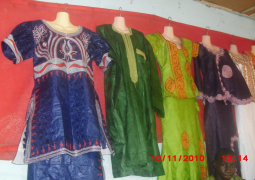Paul converted to Catholicism at Fullabantang early in his life, and thereafter he attended High School in Bathurst before proceeding to Ireland to study at the respected Trinity College, Dublin, where he earned a BA degree in 1960. He taught at Saint Augustine’s High School till 1962 when he resigned to join the PPP. In the 1962 elections, he won the Lower Fulladu West seat for the PPP.
He retained it in 1966 elections polling 2,702 votes as against his UP/Congress party opponent Augustine Sabally who polled 1,862. It is to the credit of our country that Catholics dominated the political terrain in a predominantly Muslim part of the country like Fulladu.
P.L was appointed Education minister in the first PPP cabinet appointed in June 1962. In this capacity he implemented the first Gambia education policy of 1961-1965, designed by the P.S Njie administration during its short tenure of 1961-1962.
This policy entailed four main characteristics: it put school entry age to six years; it pegged a six years primary school education; upgraded Armitage to High School and created sixth form for science and arts at Gambia High School. Under his second tenure as Education minister from March 1965 to June 1966, he introduced the second Gambia education policy 1965-1975, which called for more attention to vocation training and girl’s education.
It was under this policy that what was then called secondary technical schools were established in the country.
P.L also started the unpopular PPP government decision of giving priority to students pursuing medicine, engineering, accountancy, agriculture on scholarships tenable abroad. He also placed a cap on the amount of scholarships given to students pursuing courses in certain fields ‘so that we do not train more than can be absorbed’. P.L also insisted as education minister that only sixth formers be given scholarships to study abroad. These were indeed slightly unpopular decisions, but which he took in due prudence knowing the employment market in the country in 1965.
They were unpopular because at the time the prestige courses were public administration and economics which all wanted to study abroad.
He retained his seat in parliament after the 1966 elections, but Sir Dawda dropped him from his cabinet unveiled in late May 1966. P.L then returned to the backbenches and became a vitriolic critic of the PPP government. Russian journalist Raya Dunayeskaya who met him in 1962 said of him: ‘he is the single PPP candidate who spoke against Senegal’. Indeed, P.L told her in clear terms: ‘My view is that if Senegal’s independence is tantamount to permitting French influence in West Africa, then I stand for reviewing the whole set up of African unity because I believe West African unity can be achieved by Africans only when they meet as Africans and are not being influence by former colonial powers. If the Senegalese government feels it can speak for Senegal without dictation from France then an independent Gambia would do all in its powers to cooperate with such a government’.
It is for such radical views that he was ill at ease with his PPP colleagues who were more circumspect and less direct in their foreign policy statements. Yet, P.L although described to me by a former PPP cabinet minister as ‘impatient’ but ‘intellectual’, was highly trusted in PPP echelons at least in the years leading to 1965. For example, he was among the PPP delegation to the all important constitutional talks among political leaders, in London, on 22 July 1964 when a date for Gambian independence was fixed.
In April 1968, he was among four PPP ministers who resigned from the party to form their own party called the PPA. In September, he was expelled from the PPP. In December 1968, P.L died in Banjul aged only 31.
He once told a passing out ceremony of Gambia High School pupils in May 1965: ‘Neither show impatience towards those who do not share your views, nor contempt for those who do not hold certificates you possess.
In the world outside the walls of the classroom, paper qualifications are not all that matters’. At the same function he admonished: ‘Progress comes through those who are not content with the good enough, but are engaged in the unending striving after perfection’.


